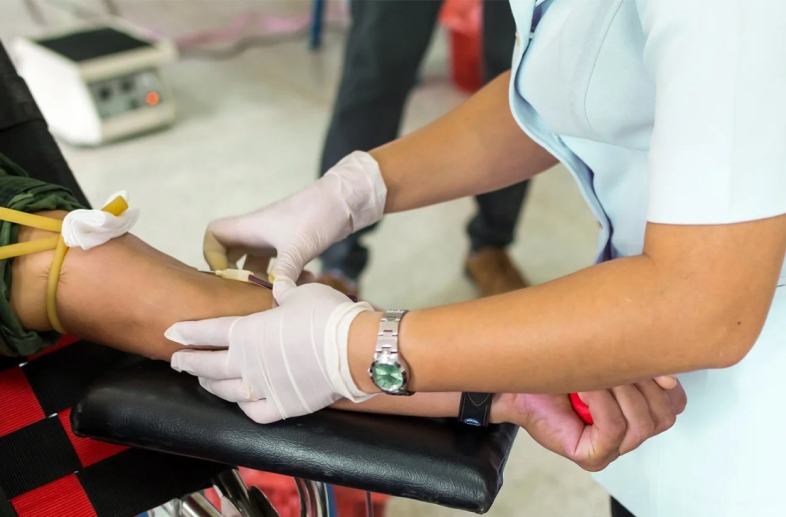Understanding Blood and Plasma Donations
Many people are familiar with blood donation, but plasma donation is less well-known. Both are vital for medical treatments, but they differ in several ways. Let’s explore the differences between donating blood and plasma, including the process, uses, and potential compensation.
What is Blood Donation?
Blood donation involves giving whole blood, which includes:
- Red blood cells
- White blood cells
- Platelets
- Plasma
The Blood Donation Process
- Health screening and questionnaire
- Quick finger prick test
- Drawing of whole blood (typically about a pint)
- Short rest and refreshments
Uses for Donated Blood
Donated blood is used for various medical purposes:
- a) Trauma and surgery patients
- b) People with blood disorders
- c) Cancer patients undergoing treatment
- d) Individuals with chronic illnesses
What is Plasma Donation?
Plasma is the liquid portion of blood that contains important proteins and antibodies. When you donate plasma for money, only the plasma is collected, and the other blood components are returned to your body.
The Plasma Donation Process
- Health screening and questionnaire
- Blood test
- Plasmapheresis (separating plasma from other blood components)
- Return of remaining blood components to the donor
Uses for Donated Plasma
Plasma donations are crucial for:
- Creating life-saving medications
- Treating immune deficiencies
- Helping burn victims
- Managing bleeding disorders
Key Differences Between Blood and Plasma Donation
Understanding the differences can help you decide which donation type is right for you:
- Frequency of donation • Blood: Every 56 days • Plasma: Up to twice a week (with at least one day between donations)
- Time commitment • Blood: About 1 hour • Plasma: 1-2 hours
- Recovery time • Blood: Longer recovery due to loss of red blood cells • Plasma: Quicker recovery as red blood cells are returned
- Eligibility requirements • Blood: Less stringent health requirements • Plasma: Stricter health and lifestyle criteria
Compensation: Which Pays More?
One of the most significant differences between blood and plasma donation is the potential for compensation.
Blood Donation Compensation
- Typically unpaid and voluntary
- Some organizations offer small incentives like gift cards or T-shirts
- Focus is on altruistic motivation
Plasma Donation Compensation
- Often compensated
- Rates vary by location and donation frequency
- Can be a way to donate plasma for money regularly
When you donate plasma for money, you can typically earn:
- $20-$50 per donation
- Up to $300-$400 per month (if donating maximum allowed times)
- Bonus payments for new donors or referrals
Factors to Consider When Choosing to Donate
While compensation might be a motivating factor, consider these aspects:
- Your health and eligibility for each type of donation
- Time commitment and donation frequency
- Personal preferences and comfort with the procedures
- Local demand for blood or plasma
- Your primary motivation (financial vs. altruistic)
The Impact of Your Donation
Regardless of which type you choose, both blood and plasma donations save lives:
- A single blood donation can help up to three people
- Plasma donations contribute to treatments for numerous medical conditions
- Regular donors play a crucial role in maintaining adequate supplies
- Your donation can make a significant difference in someone’s life
Preparing for Donation
Whether you’re donating blood or plasma, proper preparation is key:
- a) Stay well-hydrated before and after donation
- b) Eat a healthy meal before donating
- c) Get a good night’s sleep
- d) Bring identification and any required documentation
Potential Side Effects
Both types of donation are generally safe, but some side effects may occur:
- Bruising at the needle site
- Fatigue
- Dizziness or lightheadedness
- Rarely, more serious complications
Finding a Donation Center
To locate a donation center near you:
- Check with local hospitals or blood banks
- Search online for plasma donation centers in your area
- Ask your healthcare provider for recommendations
- Look for mobile blood drives in your community
Making Your Decision
Ultimately, the choice between donating blood and plasma depends on your personal circumstances, health status, and motivations. If you’re looking to donate plasma for money, remember that while compensation can be a nice benefit, the impact of your donation goes far beyond financial gain.
Both blood and plasma donations play crucial roles in modern healthcare. Whether you choose to donate blood voluntarily or donate plasma for money, your contribution can make a significant difference in the lives of those in need. Consider trying both types of donation to see which one suits you best, and remember that your generosity, regardless of the form it takes, is invaluable to those who rely on these life-saving donations.

